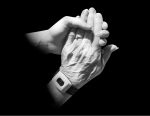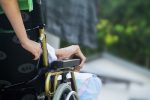
Even though it is not required in many states to attend home health aide classes, there are people who like to improve their qualifications and expand their knowledge so as to be even better in their profession.
The reason for this advancement is that those who have attended home health aide classes are more attractive to employers and in high demand in many places.
Actually, the increasing number of elderly citizens is requiring knowledgeable home health aides who will provide assistance in their own homes.
So as to become a competent caregiver, you will need to have the appropriate home health aide training.
In some states, an HHA is required to register with a governmental agency to prove the possession of a certification.
Page Navigation
Finding Educational Programs for Caregivers
The requirement that each and every caregiver will have to meet so as to become certified is to pass a criminal history background check.
This is determined by state law, as federal and state background checks are significant for protecting senior citizens who can be in danger if they have to rely on an assistant with a history of drug, alcohol, or physical abuse.
Interested applicants have the option to choose from traditional schools as well as online schools that offer home health aide classes.
They can get in touch with community colleges and caregiver placement agencies so as to find out more about home health aide training programs offered.
There are some places where they can get HHA training for free.
Understanding How to Handle Emergencies
Certified nursing assistant programs are offered through assisted living facilities and nursing homes.
These institutions offer coursework and practical experiences in professional caregiver responsibilities, but they frequently require a student to have a high school diploma so as to be allowed to begin HHA classes.
Students are required to take a group of classes related to care for the elderly, which will lead to an understanding of the human body.
They will be studying anatomy or physiology courses, first aid, and cardiopulmonary resuscitation as these are needed skills when they find themselves in situations to assist a client with a medical emergency.
Reading and Following Care Plans
Caregivers’ roles are frequently related to support clients with mobility issues including walking and sitting.
During their studies, students will be taught and trained on how to lift and move clients safely when they need to bathe or shower them.
This personal care occupation involves learning about sanitizing items, such as bedding.
It has to be done so as to prevent clients from developing an infection from dangerous pathogens.
HHAs in private residences will find themselves working under the authority of registered nurses.
Nurses will develop individualized care plans for each client.
When attending home health aide classes, students will be instructed on how to read and follow these care plans and guidelines designed for clients.
Pass a Competency Test
Last but not least, HHA classes will include lessons related to basic nutrition.
This means that professional caregivers will learn how to prepare healthy meals for clients, how to feed a patient correctly if this has to be done, and how to correctly check a client’s vital signs such as heart rate, body temperature, and blood pressure.
If you enroll in these classes offered by community colleges or health care facilities. students these necessary procedures will be taught by physicians, registered nurses, and certified nursing assistants.
When classes are completed, a student is supposed to take a national or state competency exam with the aim to have proof of his/her knowledge.








